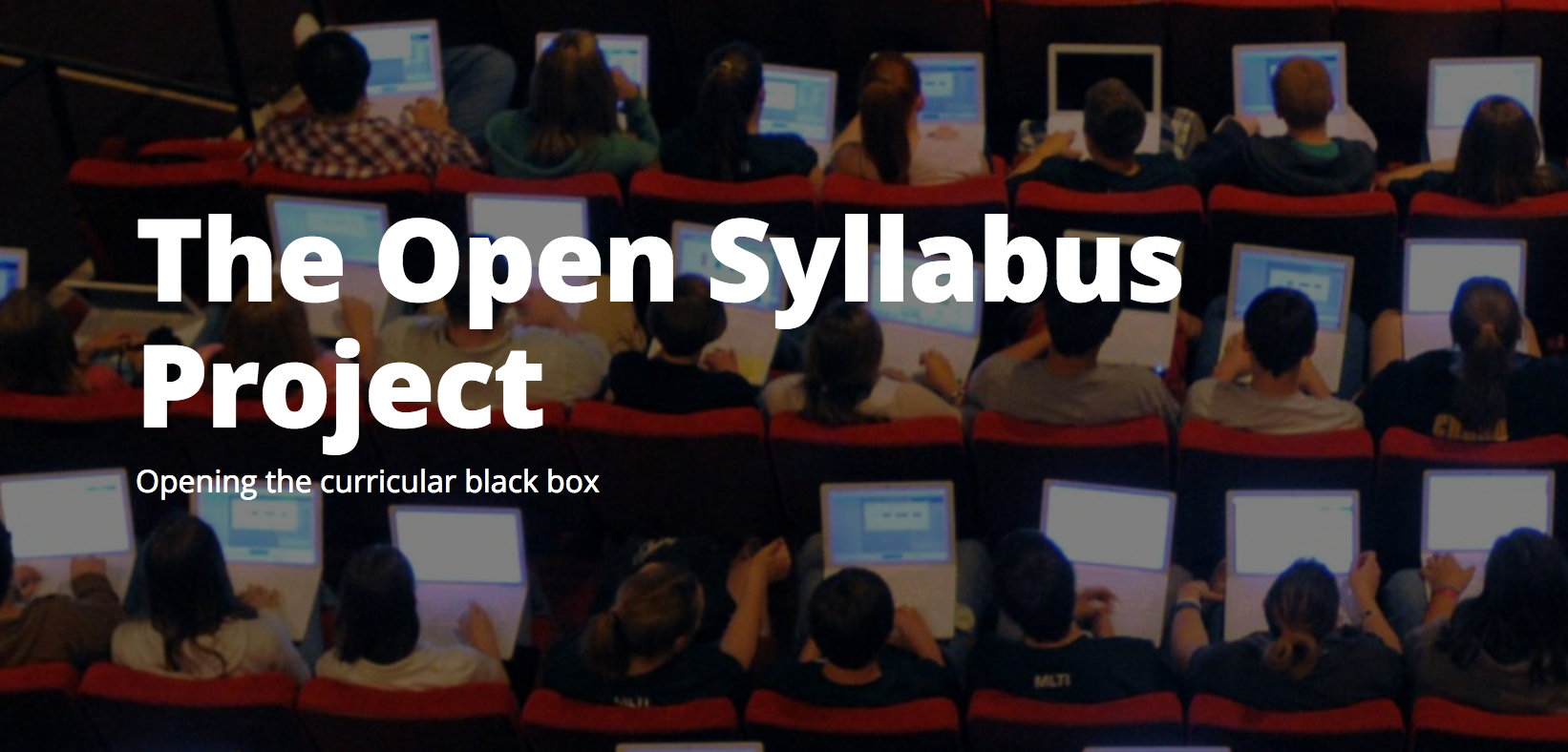WORLD’S FIRST OPEN SYLLABUS PROJECT TO EXPAND INTO NEW LANGUAGES AFTER BEING AWARDED BY GLOBAL INNOVATION GRANT, FROM DIGITAL SCIENCE
 The Open Syllabus Project is the latest research tool to receive up to $30K from the prestigious Catalyst Grant, courtesy of Digital Science – the technology company responsible for helping the global research community work smarter and discover more.
The Open Syllabus Project is the latest research tool to receive up to $30K from the prestigious Catalyst Grant, courtesy of Digital Science – the technology company responsible for helping the global research community work smarter and discover more.
The Open Syllabus Project (OSP) is building the world’s first large-scale online database of university course syllabi as a platform for new bibliometric, research, teaching, and administrative tools. The project’s beta Syllabus Explorer launched in 2016 with an archive of over 1 million syllabi and the ability to rank texts by appearance and co-occurrence on syllabi (i.e. what’s taught together). The Syllabus Explorer also debuted a new prototype publication metric—teaching score—derived from the frequency with which works are assigned.
OSP is based at The American Assembly, a public policy institute at Columbia University, and its next version will greatly expand the size of the collection, the quality of metadata, and the range of tools available for filtering and analyzing curricular data. Syllabus Explorer 2.0 will launch this fall (2017).
Joe Karaganis, Director and Co-Founder of the Open Syllabus Project and Vice-President of The American Assembly at Columbia University, shares his thoughts after receiving the award:
“We were delighted to learn that we’d been awarded via the Catalyst Grant – this now means we can begin the process of extending our framework into other languages, starting with German, Spanish, and Japanese.
“It’s a very exciting time for OSP – future versions will build on deeper analysis of the collection, including the ability to trace learning pathways through topics and fields and compare the teaching profiles of institutions, too.”
Steve Scott, Director of Portfolio Development at Digital Science and one of the Catalyst Grant judges said:
“Open Syllabus Project is creating a unique database that will impact academia on a global scale, so it’s incredibly exciting to help the team build on their great work to date as a result of this Catalyst Grant award.
“Twice a year we open the Catalyst Grant to applications from all over the world – and each year we receive more applications. The people best positioned to know what innovations are needed are researchers themselves – but it’s incredibly hard for those with an idea to secure early-stage funding – finding investors who understand the research market is a challenge, meaning many potentially successful ideas remain just that, ‘ideas’. That’s exactly why we created the Catalyst Grant – our financial support, alongside our advice makes a real difference.”
-ENDS-
Notes to editor
About the Catalyst Grant from Digital Science
Digital Science, the organisation that revealed how Brexit would cost the UK’s research and evidence market a whopping £1 billion, has created an innovation-friendly environment for anyone with an early stage idea that could impact global research, it’s called the Catalyst Grant. Twice a year anyone with an idea that could improve research can apply for up to £25K ($30K) and if awarded, they will receive incubator-type support from market-leading experts to help create their product and get it into the hands of the people who need it most.
About the Open Syllabus Project
- Read more and meet the OSP team here.
- David McClure is the technical director of the project. He is currently pursuing a Masters in computer science at MIT.
Previous Awardees
Previous awardees of the grant include TetraScience (Boston, USA) – a mission control for research and development designed to accelerate scientific discovery by enhancing productivity; Figures (New York, USA) – a workflow solution to manage figure data including creation, tracking, editing and discussion – all on one platform; HackScience (London, UK) – a platform enabling scientists to create, share and control open and affordable lab automation tools; Nutonian (Boston, USA) an AI modeling engine that analyses vast amounts of structured data billions of times per second to build the most accurate and actionable models.
See full list of awardees here.
How to apply
If you’re a researcher with an idea, or even if you are new to research but want to challenge yourself to come up with an idea that would impact the research and evidence industry, you can apply for the Catalyst Grant before 31st December 2017 here.
